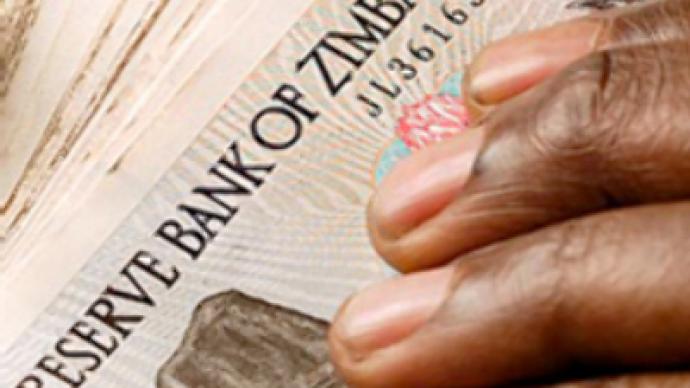1 BLN dollars sometimes not enough to buy a scone

Zimbabwe’s Central Bank has issued a new piece of currency worth 1 BLN local dollars. The note will circulate from Monday.
The move comes days after Gideon Gono, Governor of the Reserve Bank of Zimbabwe, announced the galloping inflation in the country had reached 2,200,000% in July. The previous record high was registered in February, 2008, at 165,000%.
Given the inflation rate, the new piece of money might soon be replaced by a more valuable one. Currently 1 BLN Zimbabwean dollars isn’t enough to buy a scone, although as recently as May one could afford three scones for only 50 MLN dollars, which is an equivalent of $US 1.
The new note would hardly make the ordinary Zimbabweans’ life any easier and convenient. They still need to take kilos of money in cash at shopping. For instance, the Zimbabwean equivalent of $US 100 weights around 20 kilos.
Zimbabwe has been in political and economic deadlock since a disputed presidential run-off last month. Although Robert Mugabe has already sworn in as the country’s president opposition leader Morgan Tsvangirai, who is backed by the West, continues to claim he won the first round of the election, and refuses to sign any agreement on further talks.
Following the alleged election violence the UK and the U.S., which have no economic ties with Zimbabwe, proposed to impose further sanctions against the long-suffering state at a Security Council session in New York. Russia and China vetoed the draft resolution.
Moscow says the measures would set a 'dangerous precedent' for Security Council interference in internal affairs.
The sanctions would have led to an arms embargo and travel restrictions against top Zimbabwean officials, including President Robert Mugabe.














